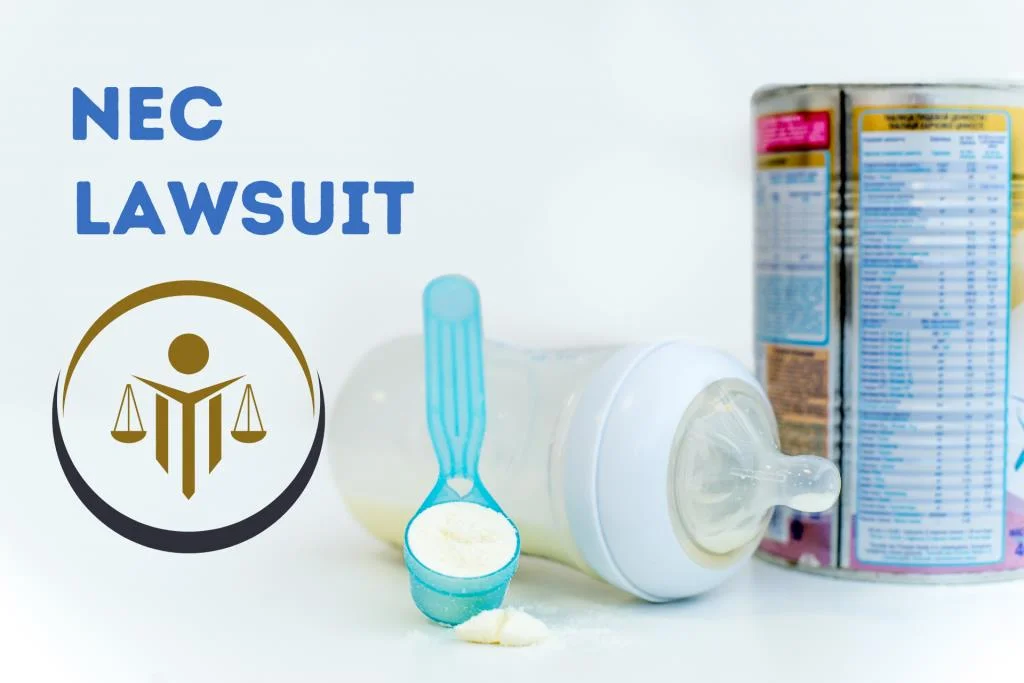We’ve all heard the saying, “A baby’s gurgle is a happy sound.” But sometimes, an infant’s tummy troubles can be a cause for concern. Necrotizing enterocolitis, or NEC, is a severe intestinal disease that affects some newborns, particularly those born prematurely.
While the exact cause of NEC is still being researched, there’s a growing body of evidence suggesting a link between formula feeding and the development of NEC. Understanding this connection can be crucial for parents and caregivers to make informed decisions about infant feeding.
Let’s dive deeper into NEC and explore ways to mitigate risks. Click here to learn more about the Enfamil recall, a recent event highlighting the ongoing importance of infant formula safety.
What is Necrotizing Enterocolitis (NEC)?
Imagine a tiny baby’s intestines, delicate tubes designed to absorb nutrients. Now, picture an inflammation that damages these tissues. This is necrotizing enterocolitis, or NEC, a serious condition in which parts of the intestine become inflamed and die. In severe cases, the intestine can even rupture, spilling its contents into the baby’s belly.
Newborns, especially those born prematurely, are most at risk for NEC. Symptoms to watch for include
- Feeding problems
- A swollen belly
- Bloody stools
- Green vomit
While the exact cause of NEC remains under investigation, factors like prematurity and feeding practices are believed to play a role.
The Composition of Baby Formula vs. Breast Milk
Breast milk is a marvel of nature when it comes to nourishing a tiny human. Breast milk boasts a unique blend of nutrients, immune factors, and gut-friendly components compared to cow’s milk-based formula.
First, breast milk is easier for a newborn’s immature digestive system to break down. It contains the perfect amount of protein, fat, and sugar, while the formula might have higher levels of protein and harder-to-digest fats.
But the benefits go beyond simple digestion. Breast milk is loaded with antibodies and white blood cells that help fight infection and inflammation in a baby’s developing gut. Formula, on the other hand, lacks these crucial immune boosters.
Finally, breast milk promotes the growth of healthy bacteria in a baby’s intestines. This “good” gut bacteria is vital to digestion and immune function. Formula might not provide the same level of support for this critical gut ecosystem.
These critical differences in composition might explain why breastfed babies seem to have a lower risk of developing NEC than formula-fed infants.

Studies Linking Baby Formula and NEC
Research paints a clear picture: formula feeding, particularly in premature babies, is linked to a higher risk of NEC. Studies have shown that premature infants who are fed only with formula are several times more likely to develop NEC compared to those fed breast milk. This increased risk highlights the importance of breast milk, especially for vulnerable newborns.
So, what makes breast milk so protective? Scientists believe several factors contribute. Breast milk’s anti-inflammatory properties may help soothe a baby’s immature gut, reducing the risk of inflammation that can lead to NEC. Additionally, breast milk nourishes the growth of beneficial bacteria in a baby’s intestines.
This healthy gut microbiome plays a crucial role in digestion and immune function, potentially offering further protection against NEC.
Additional Factors Affecting NEC Risk
It’s important to remember that formula feeding isn’t the only factor influencing NEC risk. Prematurity is a major contributor, as premature babies have less developed digestive systems. Certain intestinal problems a baby might be born with can also increase susceptibility.
The exact causes of NEC remain complex and not fully understood. Researchers are actively investigating the interplay between various factors, including feeding practices, a baby’s gut microbiome, and potential genetic predispositions. While we’ve learned much, there’s still more to uncover about this challenging condition.
Importance of Breastfeeding
Breastfeeding offers a robust line of defense against NEC, particularly for premature babies. Breast milk’s unique blend of nutrients, immune factors, and gut-builders helps fortify a fragile digestive system. Whenever possible, prioritizing breastfeeding for premature infants is crucial.
However, situations may arise where breastfeeding isn’t readily available. In such cases, healthcare professionals might recommend fortified breast milk. This involves adding essential nutrients to a mother’s breast milk to ensure it meets the specific needs of a premature baby.
Choosing a Formula for High-Risk Infants
For some high-risk infants, focused formulas designed for preemies may be necessary. These formulas aim to mimic breast milk in nutrient composition and digestibility. However, it’s vital to consult a pediatrician or healthcare provider before choosing any formula, as they can guide you based on your baby’s specific needs.
Conclusion
While research suggests a link between formula feeding and NEC, particularly in premature babies, the causes are complex. Breastfeeding offers significant advantages, but fortified breast milk or specialized formulas can be options when needed. Always discuss infant feeding practices with your pediatrician to make the best choices for your baby’s health.









